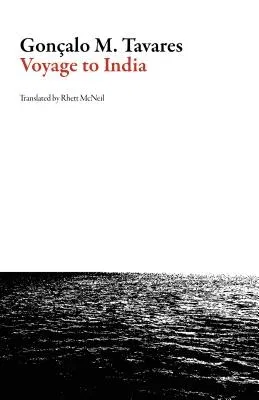Goncalo M Tavares
(Author)Voyage to IndiaPaperback, 9 December 2016

Qty
1
Turbo
Ships in 2 - 3 days
In Stock
Free Delivery
Cash on Delivery
15 Days
Free Returns
Secure Checkout

Part of Series
Portuguese Literature
Print Length
494 pages
Language
English
Publisher
Dalkey Archive Press
Date Published
9 Dec 2016
ISBN-10
1628971606
ISBN-13
9781628971606
Description
Product Details
Author:
Book Format:
Paperback
Country of Origin:
US
Date Published:
9 December 2016
Dimensions:
21.59 x
13.72 x
3.05 cm
ISBN-10:
1628971606
ISBN-13:
9781628971606
Language:
English
Pages:
494
Publisher:
Series:
Weight:
544.31 gm